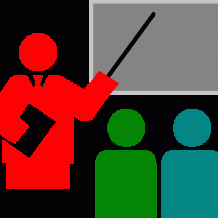Anxiety Attack Basics

Anxiety is a normal part of life. Everybody feels anxious from time to time. In fact, it is a built-in defense mechanism that helps us survive threatening situations. Sometimes, though, the brain overreacts to a normally harmless stimulus, resulting in anxiety attacks or panic attacks. These intense attacks are characterized by:
- feelings of fear
- shortness of breath
- pounding heart
- sweating
- trembling.
This fight-or-flight response can be brought on by any number of things, from stressful situations like public speaking or a car accident, to physical issues like too much alcohol, sugar or caffeine. The triggers differ from sufferer to sufferer.

The physical side of anxiety
The basic physiology of an acute anxiety attack or panic attack is as follows: the heart begins to pound in an attempt to provide the vital organs with more blood. At the same time, the body directs blood away from the extremities and towards the heart, lungs and other life-sustaining organs. Breathing becomes labored as the lungs work harder to bring in more oxygen in order to oxygenate the extra blood being pumped by the heart.
Anxiety attacks can be very hard on the body. A person under a lot of stress may find it difficult to sleep as they spend hours each night lying awake worrying. Too many sleepless nights can result in excessive sleepiness during the day, which can cause decreased work or school performance and irritability. Excessive anxiety can also manifest itself in the form of headaches and muscular tension. Hives are also a common result of anxiety attacks. These red blotches generally appear on the face, neck, back and arms during stressful situations. Other ways the skin reacts to anxiety include clamminess and excessive sweating. The gastrointestinal system is also affected by anxiety. Many anxious people experience stomach cramping, diarrhea and vomiting if they are under too much stress for too long.
 Most people who visit a doctor for treatment of their anxiety will be prescribed medication. Medications can help control the symptoms of an anxiety attack, but they will not address the deeper issues causing the attacks. Moreover, medications often have negative, and sometimes dangerous, side effects. For these reasons, it is important to also consider non-drug alternative treatments. For many people, a combination of medication and one or more of the following therapies will prove to be the most effective way to treat anxiety attacks.
Most people who visit a doctor for treatment of their anxiety will be prescribed medication. Medications can help control the symptoms of an anxiety attack, but they will not address the deeper issues causing the attacks. Moreover, medications often have negative, and sometimes dangerous, side effects. For these reasons, it is important to also consider non-drug alternative treatments. For many people, a combination of medication and one or more of the following therapies will prove to be the most effective way to treat anxiety attacks.
Cognitive behavioral therapy is a treatment that involves changing one’s negative thought processes to more positive, helpful ones. This can help work out the issues at the root of the anxiety. It usually is a lengthy process, but when coupled with medication for its immediate effects, it can be very effective as a long-term treatment option.
Relaxing the body and mind using breathing exercises or yoga can help reduce the tension associated with anxiety attacks. Acupuncture and hypnosis are also becoming popular as either alternative or complementary treatment options.
https://www.youtube.com/watch?v=Tpsdndojdjs





